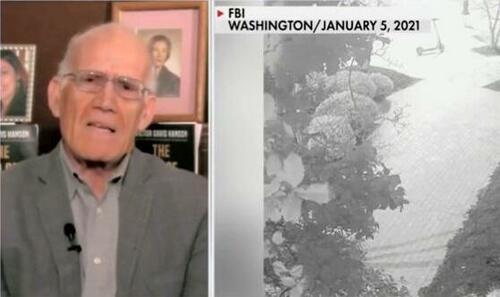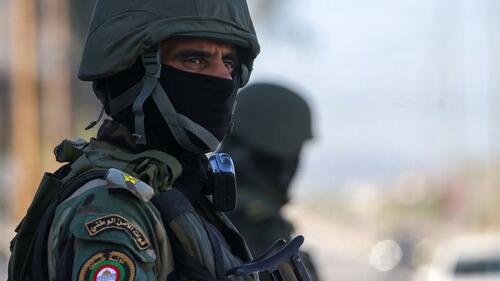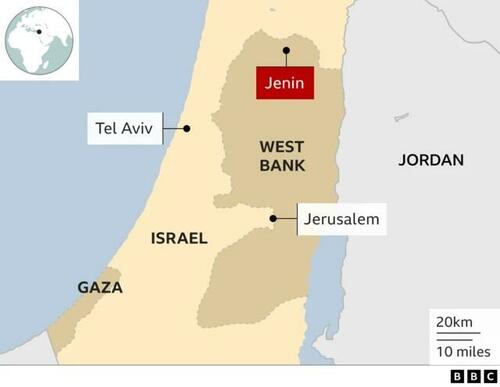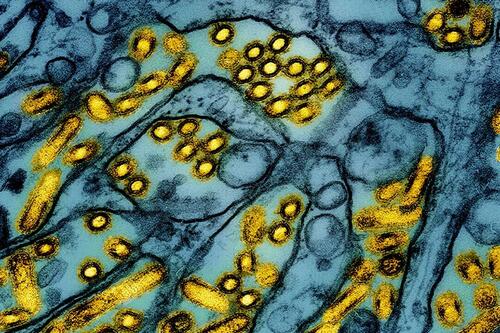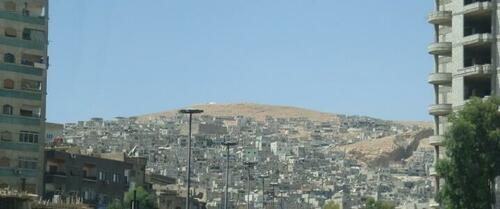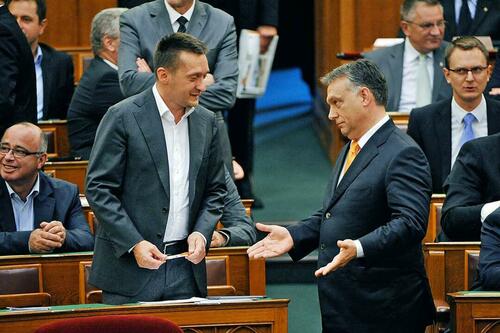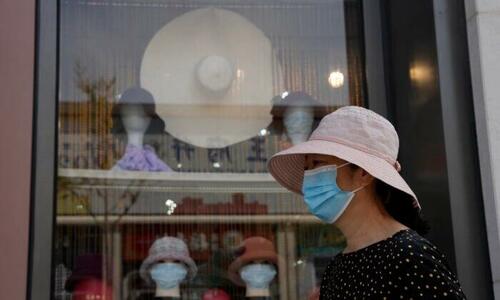Authored by Nick Giambruno via InternationalMan.com,
It’s a “scheme of central bankers to subjugate humanity by taking all securities, bank deposits, and property financed with debt.”
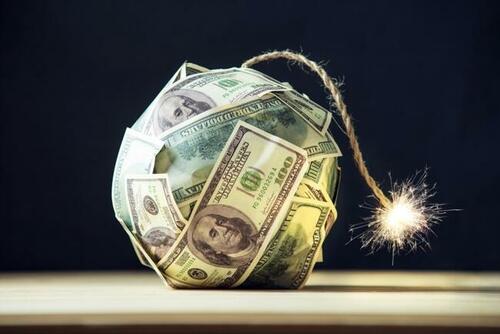
David Webb, a former hedge fund manager, and Wall Street insider, has blown the lid off a diabolical plan more than 50 years in the making in a shocking new book.
He calls it The Great Taking.
I consider it an urgent must-read (available for free here).
Here’s the synopsis (emphasis mine):
It is about the taking of collateral (all of it), the end game of the current globally synchronous debt accumulation super cycle.
This scheme is being executed by long-planned, intelligent design, the audacity and scope of which is difficult for the mind to encompass.
Included are all financial assets and bank deposits, all stocks and bonds; and hence, all underlying property of all public corporations, including all inventories, plant and equipment; land, mineral deposits, inventions and intellectual property.
Privately owned personal and real property financed with any amount of debt will likewise be taken, as will the assets of privately owned businesses which have been financed with debt.
If even partially successful, this will be the greatest conquest and subjugation in world history.
Private, closely held control of ALL central banks, and hence of all money creation, has allowed a very few people to control all political parties and governments; the intelligence agencies and their myriad front organizations; the armed forces and the police; the major corporations and, of course, the media. These very few people are the prime movers. Their plans are executed over decades. Their control is opaque.
To be clear, it is these very few people, who are hidden from you, who are behind this scheme to confiscate all assets, who are waging a hybrid war against humanity.
Webb shows how the dark forces behind central banking have spent the last 50 years meticulously putting the legal structures in place worldwide to sever property rights for securities.
Gone are the days of physical paper share certificates and bearer securities, where you had control and ownership of the asset.
Today, your control and ownership have become increasingly distant as stocks, bonds, and other investments have been centralized away from account holders and rehypothecated—a slimy practice where financial institutions reuse an account holder’s asset for their own purposes, creating multiple claims on the same asset.
Contrary to what most brokerage account holders believe, they only have the appearance of ownership. If their broker goes bust, the stocks and bonds they think they own will be used to satisfy the other more senior creditors of their broker.
Webb shows how, during the 2008 financial crisis, a small broker in Florida went bankrupt.
Instead of sending the clients’ securities to another broker, as had traditionally been the case, they were swept up by the bankruptcy receiver.
But it’s not just some isolated small broker.
The bankruptcy of Lehman Brothers set the case law precedent for secured creditors to take client assets in the case of insolvency.
The most senior secured creditors are the most powerful financial institutions closest to the central banks—JP Morgan, BlackRock, Goldman Sachs, etc.
The net effect of The Great Taking will be the biggest centralization of money and power in history as they take everyone’s securities during a future crisis.
Though it’s not just securities, they will also take ANY asset financed by debt—like real estate, cars, and small businesses—as people become unable to service their debts.
Webb provides all the details and proof in his book.
Here’s the bottom line.
The most powerful people in the world have succeeded in subverting the property rights of securities and ensnaring most of the world with debt.
The trap has been set, and the legal plumbing is in place.
All that is needed is a big crisis that will cause a tidal wave of bankruptcies, and the hidden forces behind the world’s central banks will be able to take everyone’s stocks, bonds, and any property financed by debt.
All the assets people think they own in brokerage accounts, bank accounts, pensions, and other financial accounts could vanish overnight.
Webb says, “There will be a game of musical chairs. When the music stops, you will not have a seat. It is designed to work that way.”
The Coming Collapse Is by Design
Webb makes a compelling case that the next financial crisis won’t be an accident; the global elite are making it happen to proceed with The Great Taking.
In short, it’s not plausible that such an intelligent, deliberate plan executed with persistence for more than 50 years could happen by accident.
Further, the forces behind central banking and (fake) money creation undoubtedly understand the dynamics of the boom-bust cycle they create by expanding and contracting the money supply.
They know the Everything Bubble they created will lead to a massive bust. That’s when they will execute The Great Taking.
Further, consumer debt is at record highs.
After many years of being encouraged to go deeply into debt, many Americans have reached their maximum debt saturation. They will be ripe for the picking.
As Webb explains:
“Debt is not a real thing. It is an invention, a construct designed to take real things.
The bottom line is that debt has for centuries had the function of dispossessing, of taking away property, capital and investments from someone.”
What You Can Do About It
Nobody knows the future or how The Great Taking will play out. The best you can do is to make yourself a hard target and not be among the low-hanging fruit.
You can do that by being debt-free and owning unencumbered assets within your direct control.
You don’t want to own something that is simultaneously someone else’s liability. That’s because the legal structures are already in place to take it from you during the next crisis.
Crucially, this includes fiat currency in bank accounts.
Remember, fiat currency is the unbacked liability of a bankrupt government.
Further, once you deposit currency into a bank, it is no longer yours. Technically and legally, it is the bank’s property, and what you own instead is an unsecured liability of the bank.
As The Great Taking unfolds, you won’t want to be on the other end of unsecured liabilities or IOUs of any kind.
I believe The Great Taking could happen sooner than most realize—and it won’t be pretty for many.
Most people have no idea how bad things could get—or how to prepare.
That’s why I’ve published a detailed guide called The Most Dangerous Economic Crisis in 100 Years: The Top 3 Strategies You Need Right Now.
Click here to download the free PDF.
